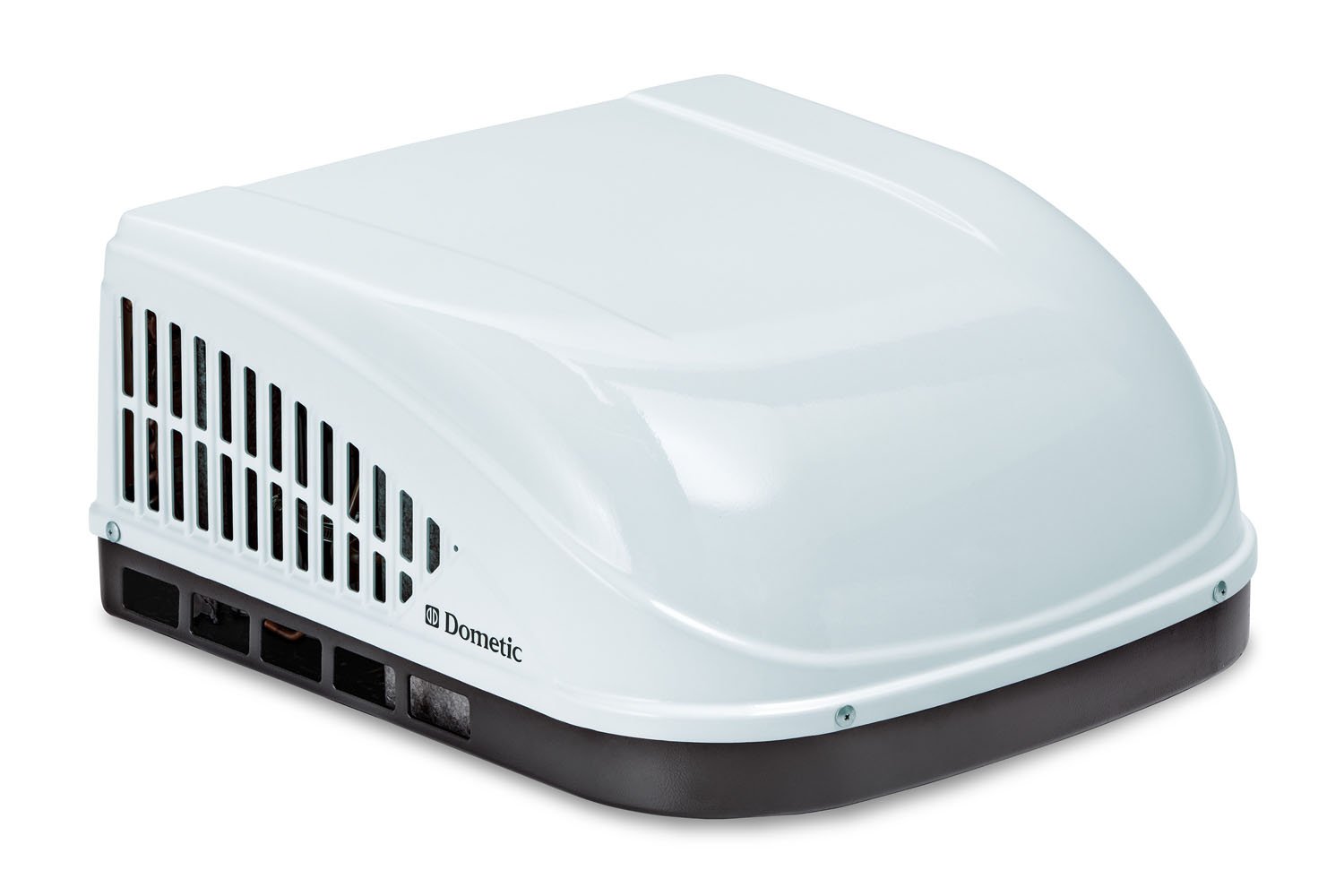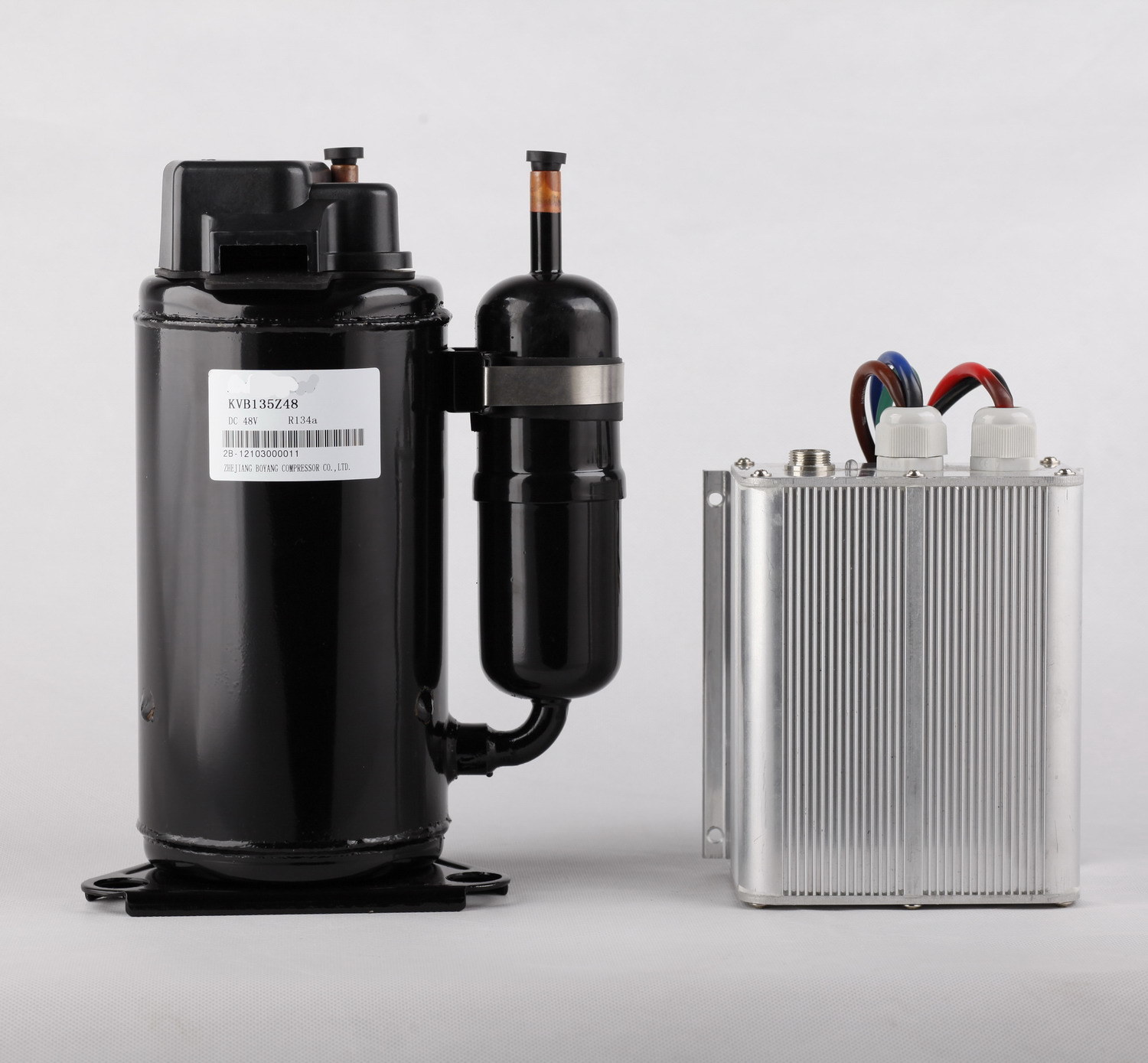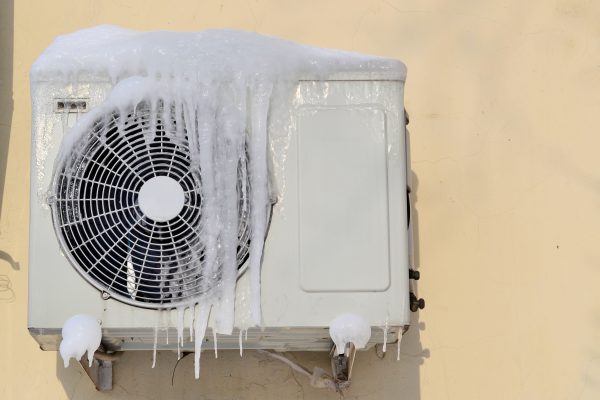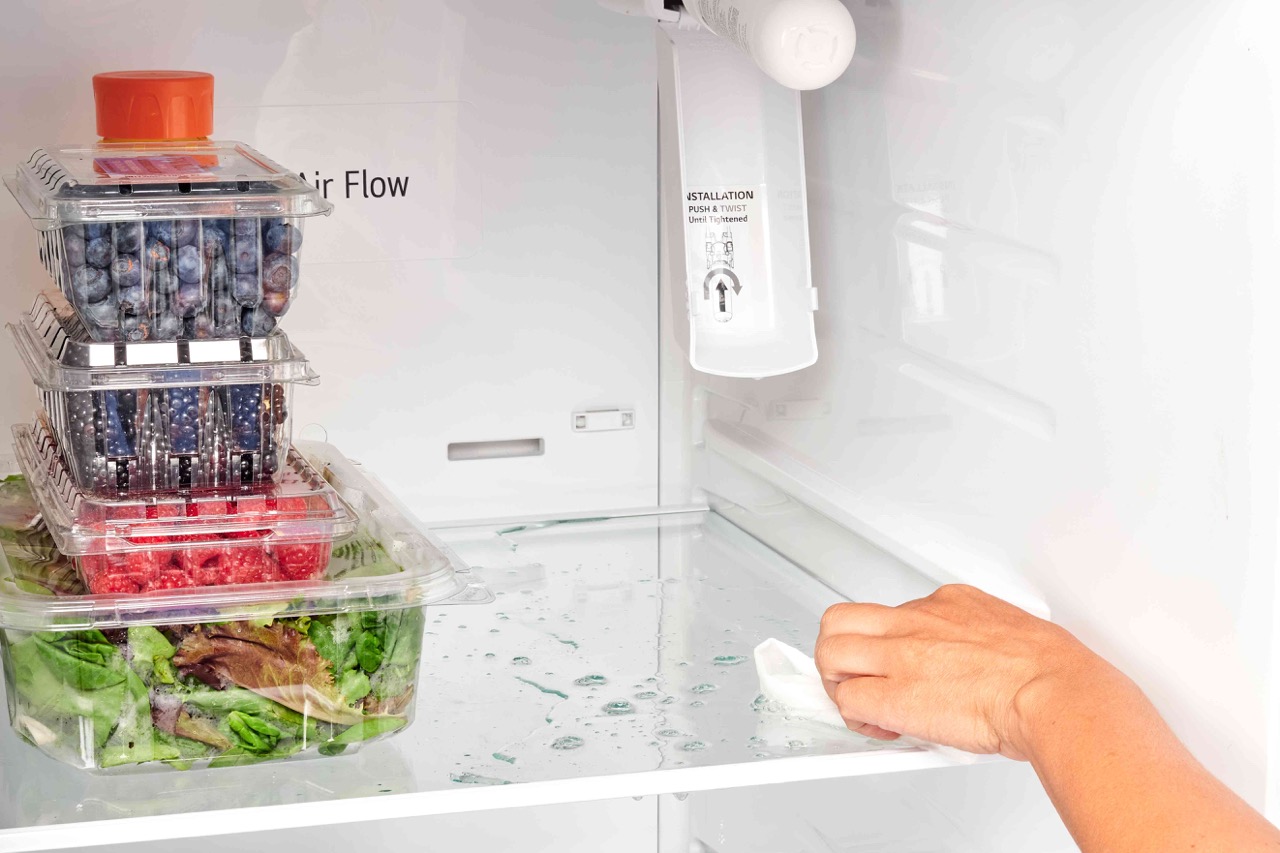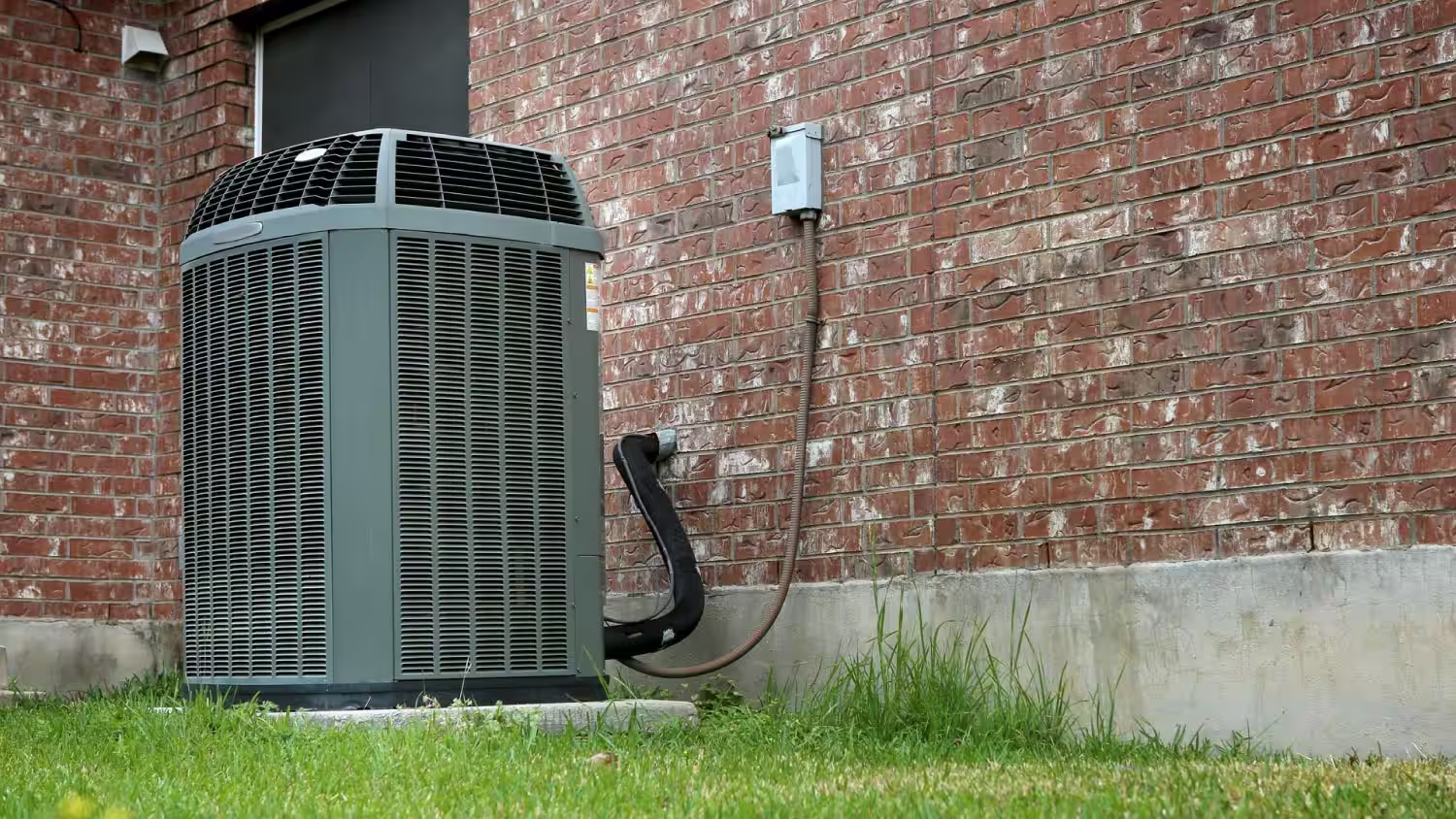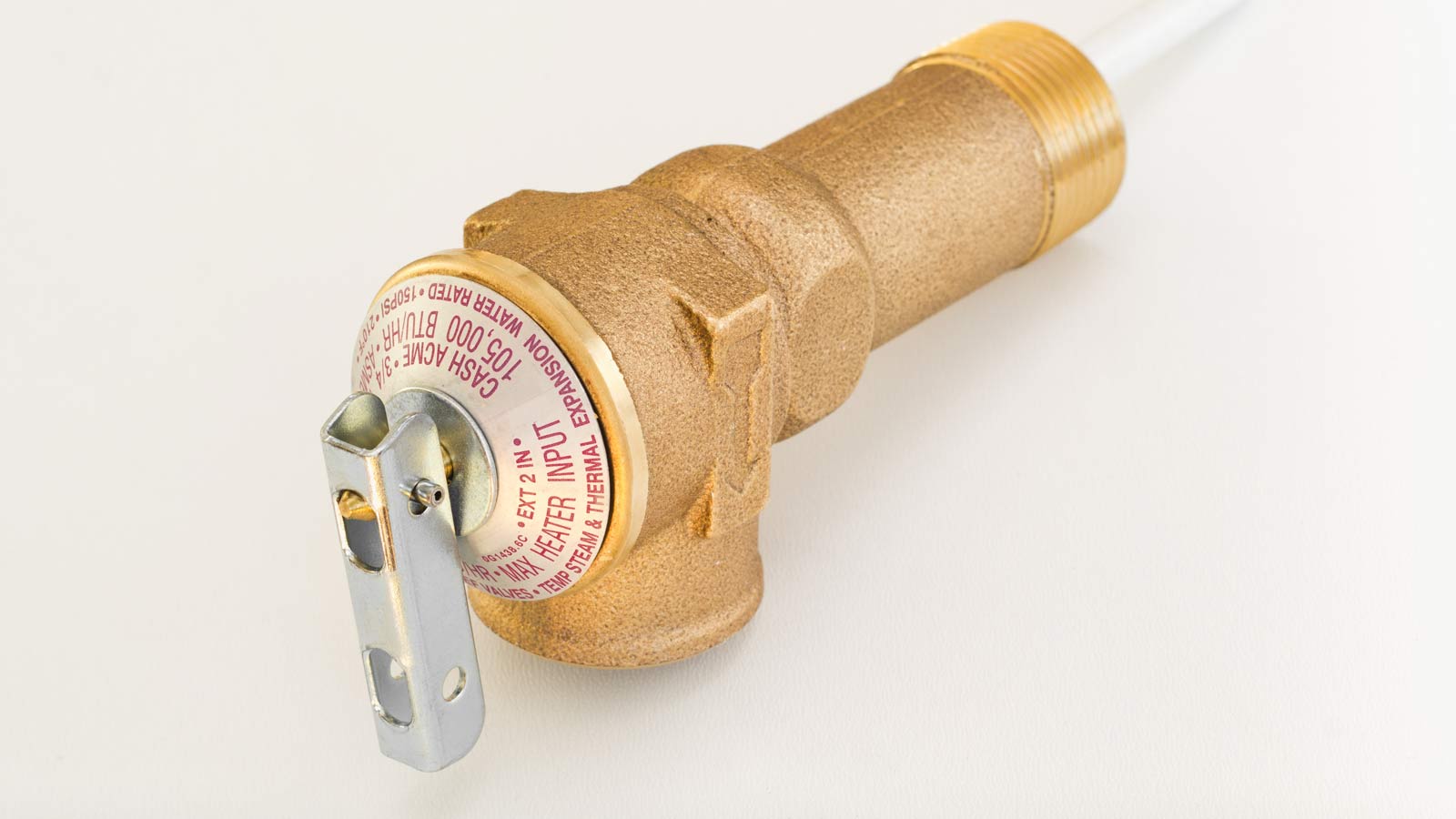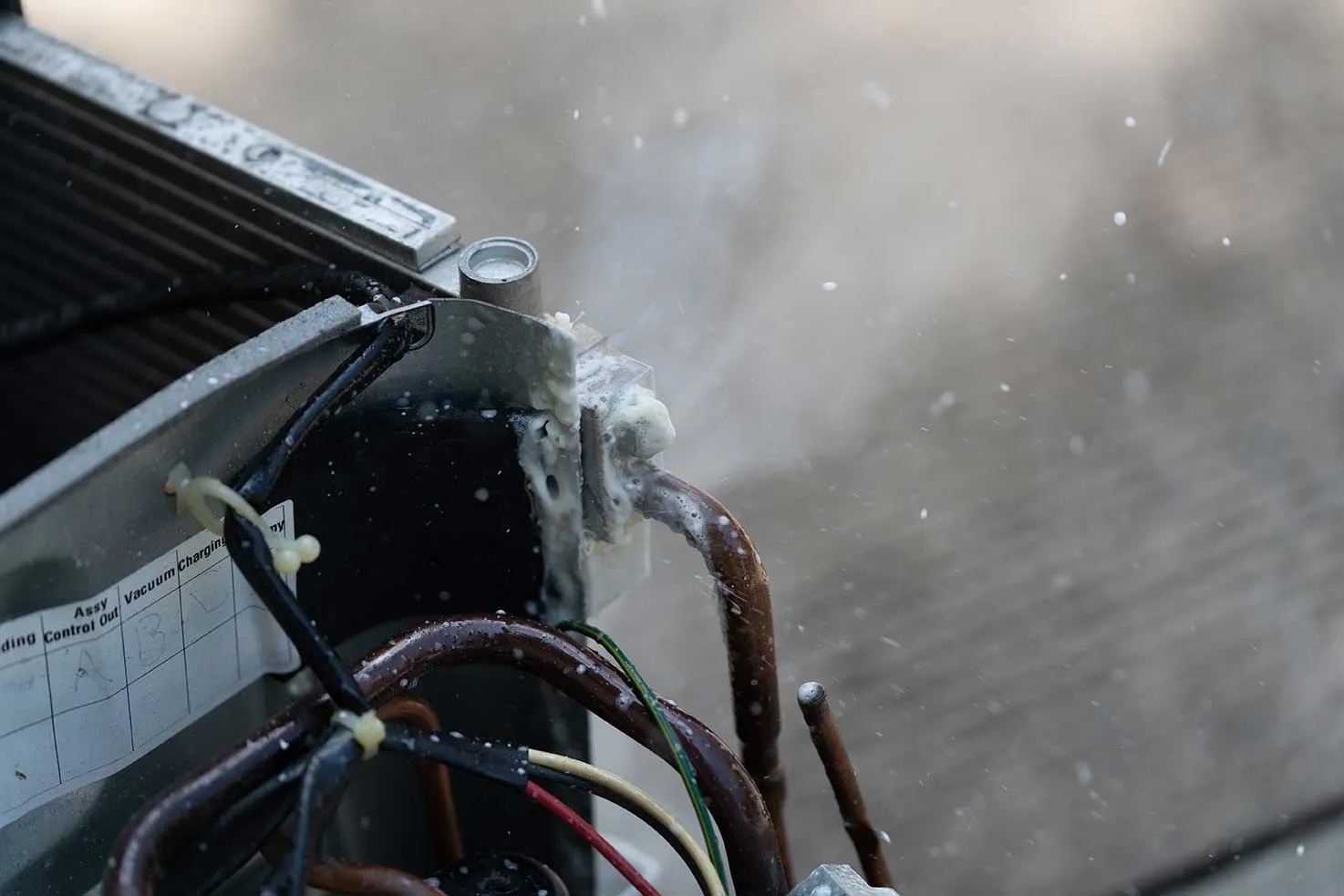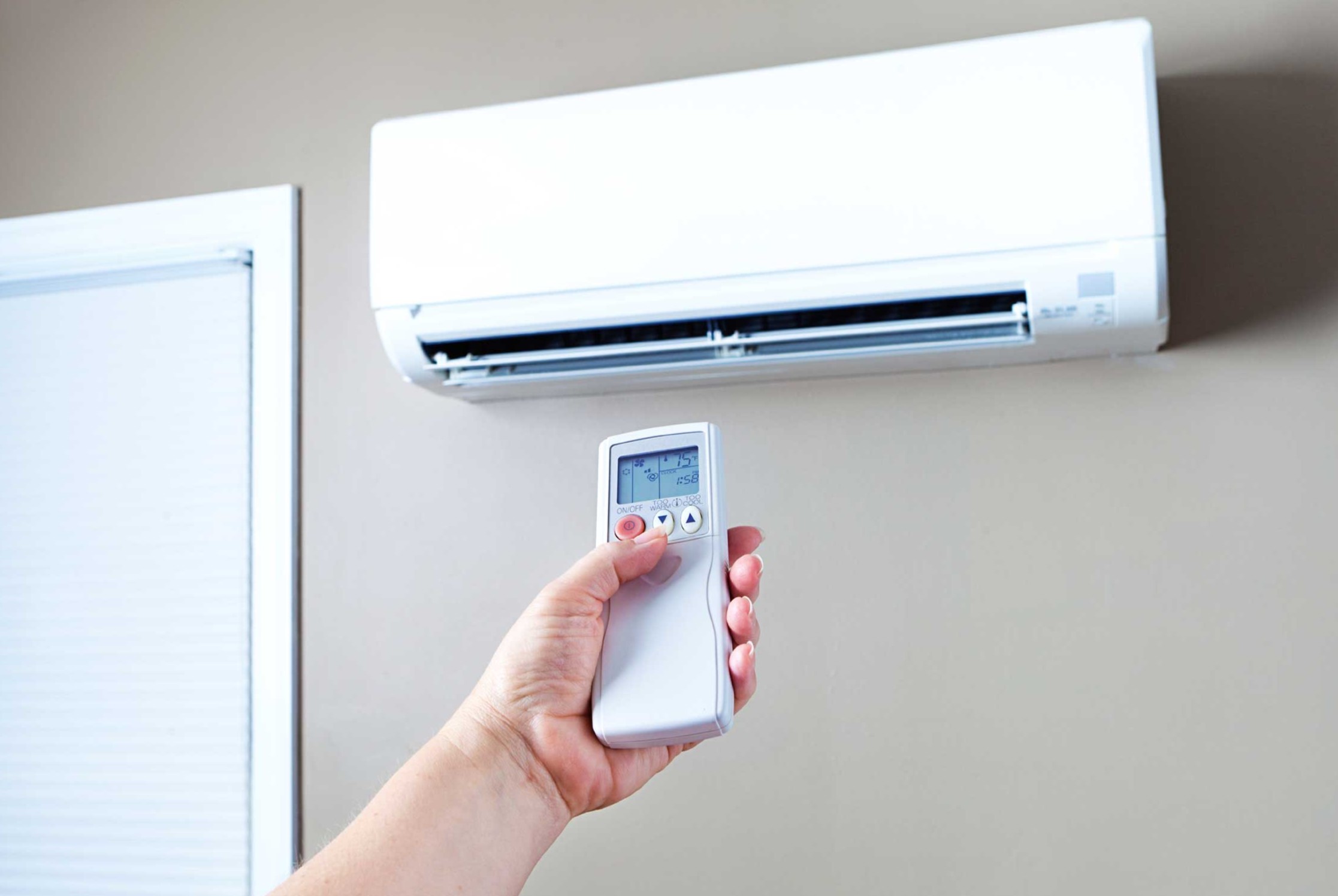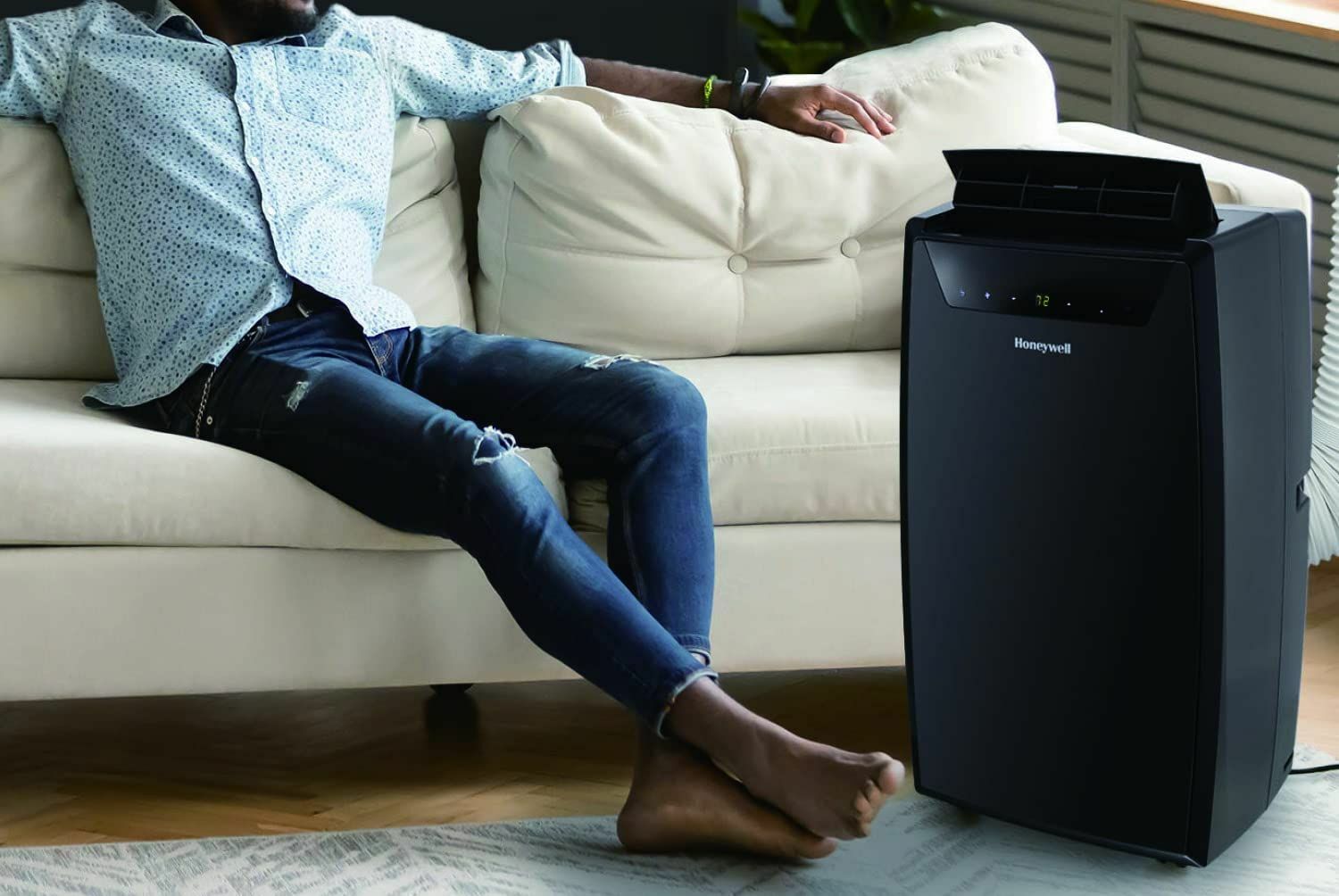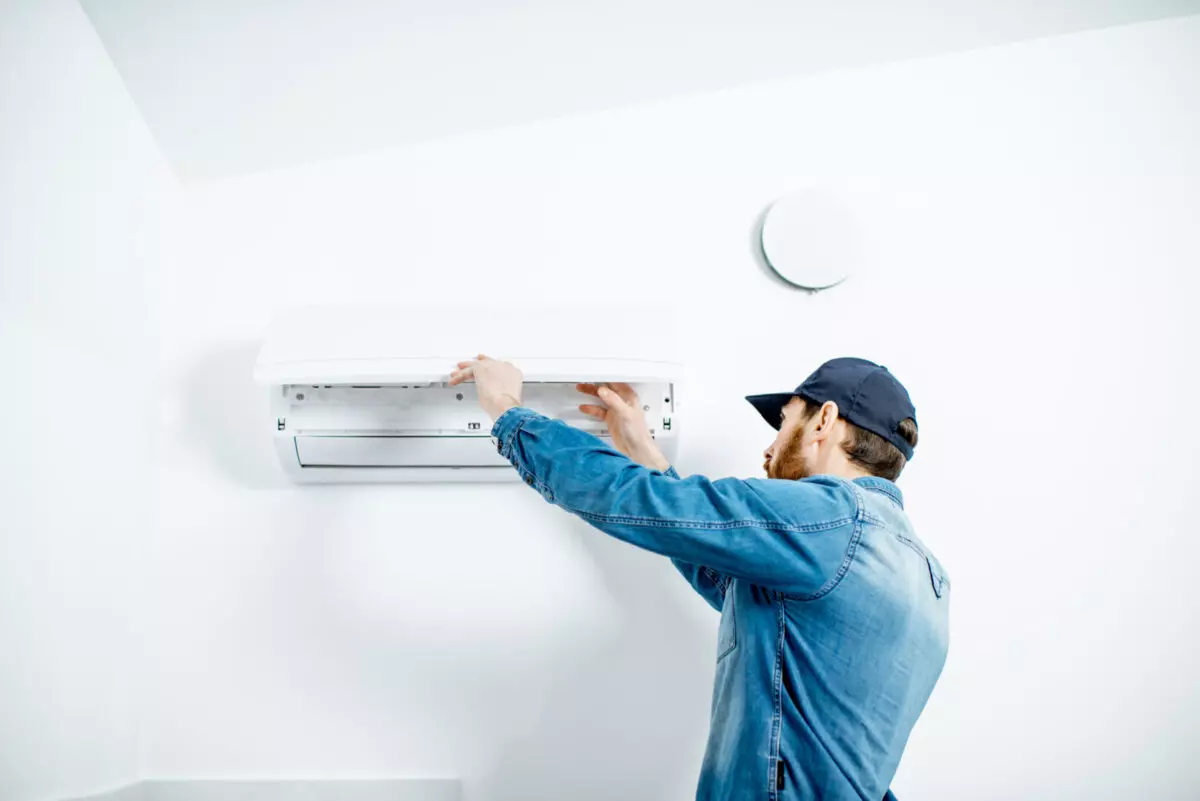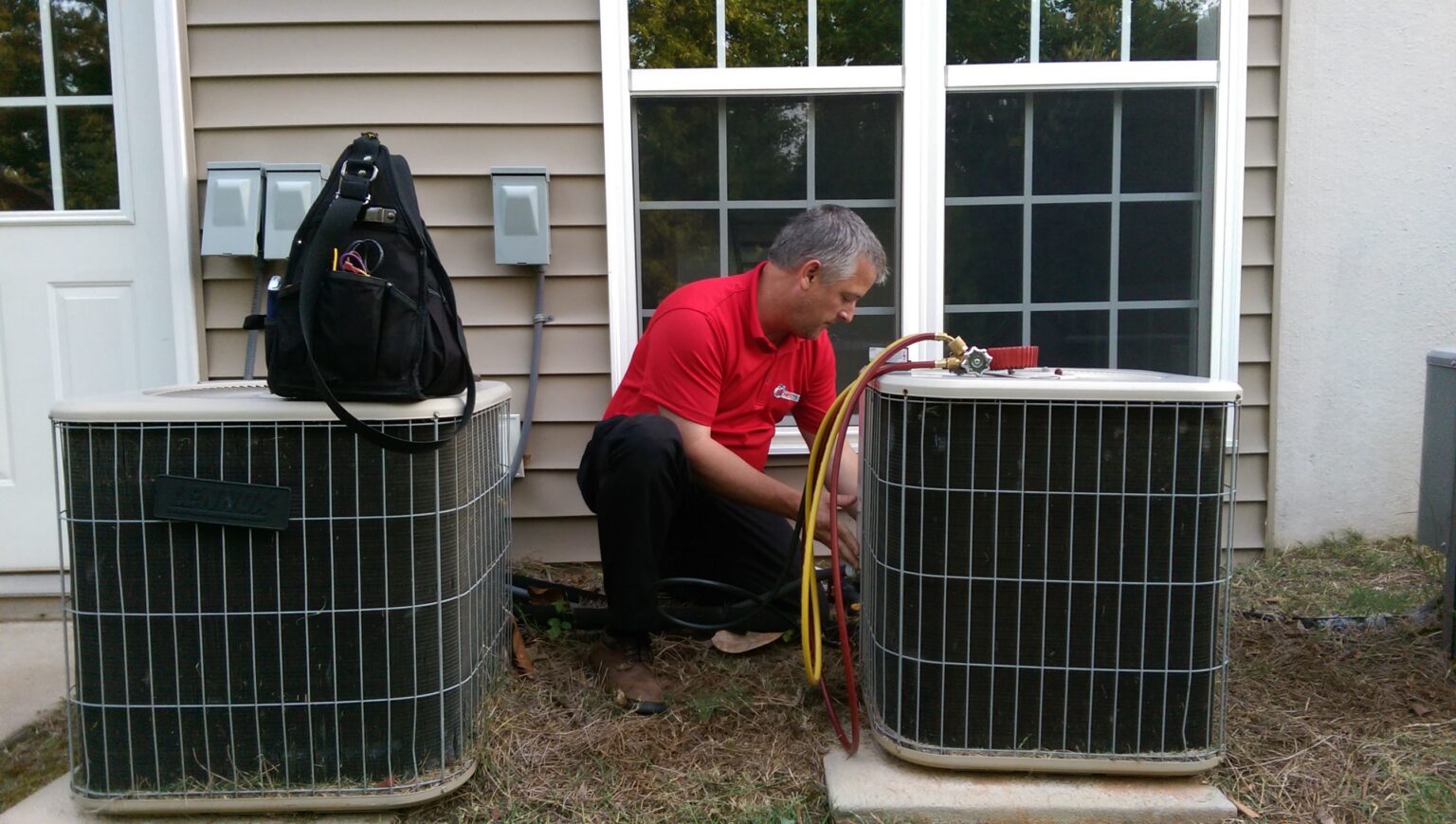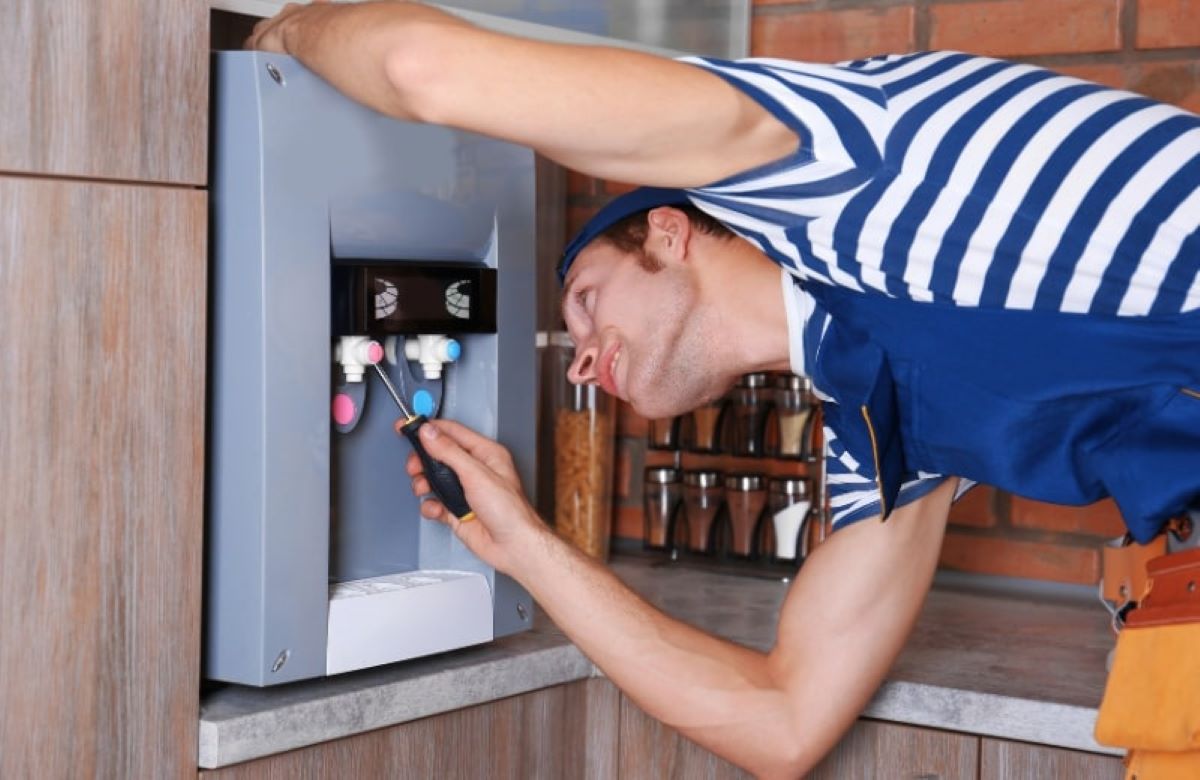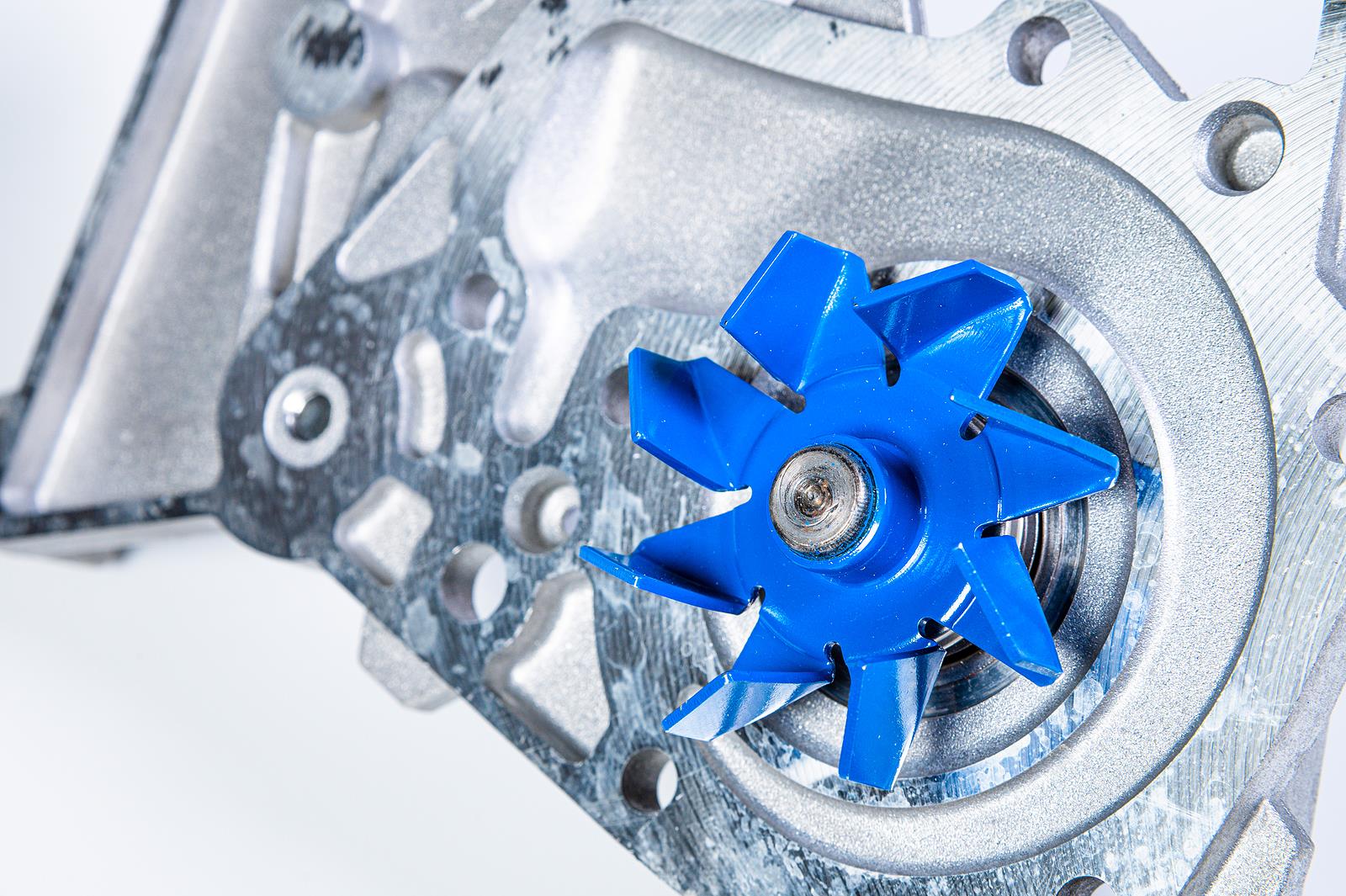Home>Home Maintenance>What Causes An Air Conditioner To Leak Water Inside
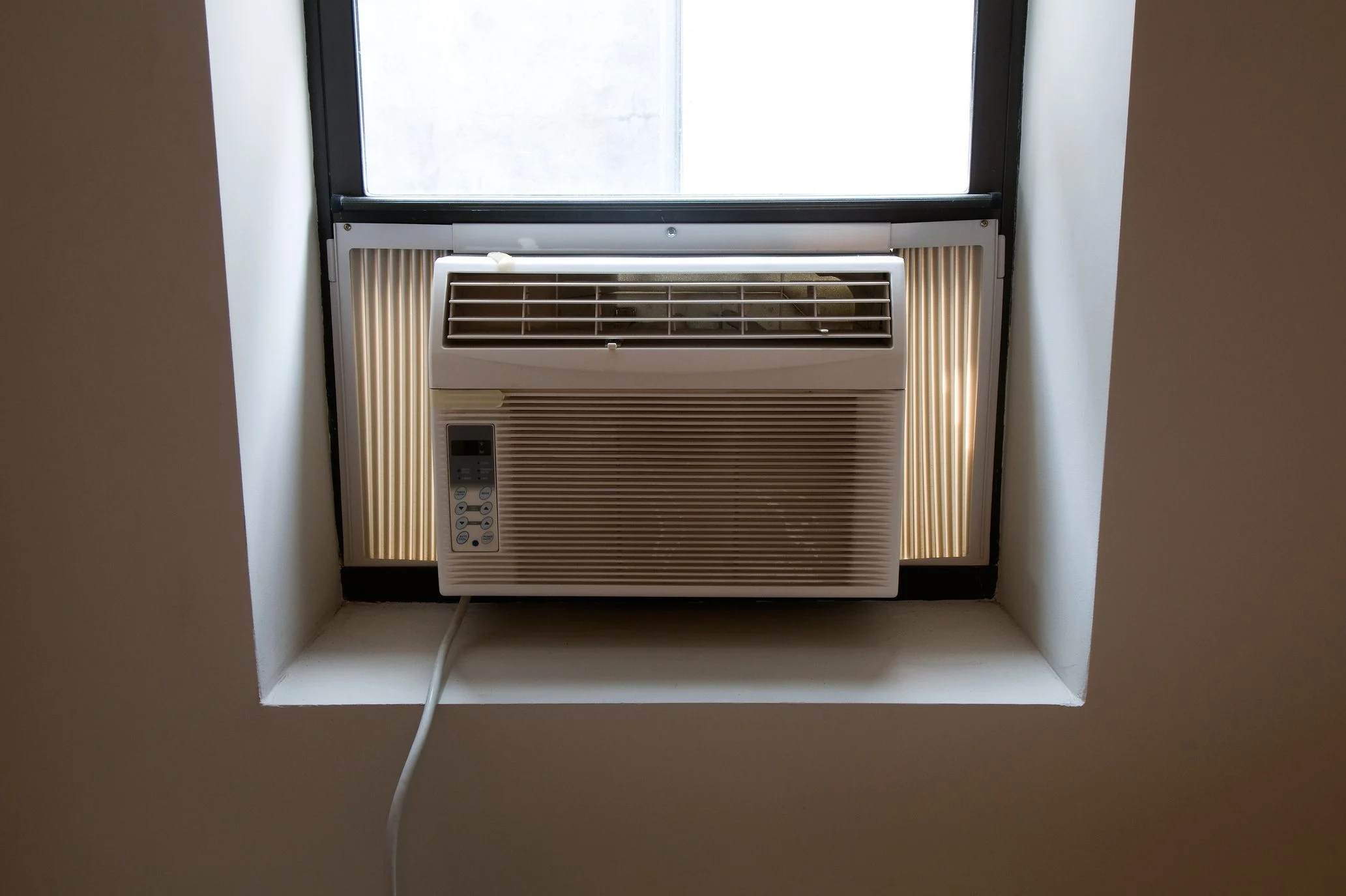

Home Maintenance
What Causes An Air Conditioner To Leak Water Inside
Modified: August 23, 2024
Discover the common reasons why your air conditioner may be leaking water inside your home. Find out how to prevent and fix this issue with proper home maintenance.
(Many of the links in this article redirect to a specific reviewed product. Your purchase of these products through affiliate links helps to generate commission for Storables.com, at no extra cost. Learn more)
Introduction
Welcome to our guide on what causes an air conditioner to leak water inside. If you’ve noticed water pooling around your AC unit or water dripping from your ceiling, it’s essential to understand the potential causes of this issue. A leaking air conditioner can not only be a nuisance but can also indicate underlying problems that need to be addressed to prevent further damage. In this article, we will explore the common causes of water leaks in air conditioners and provide you with valuable tips on prevention and maintenance.
Before we dive into the specific causes, it’s important to have a basic understanding of how air conditioners work. Air conditioners cool the air in our homes by removing heat and humidity. They do this through a refrigeration cycle that involves the evaporation and condensation of refrigerant. When warm, humid air passes over the evaporator coil, the refrigerant inside the coil absorbs the heat and moisture, resulting in cool air being circulated back into the room. The moisture that is extracted from the air condenses on the evaporator coil and is collected in a drip pan, which is then drained out of the system.
Now that we have a general understanding of how air conditioners work, let’s explore the common causes of water leaks:
Key Takeaways:
- Regularly cleaning or replacing the air filter and clearing the drain pipe can prevent water leaks in your air conditioner. Proper maintenance ensures efficient cooling and reduces the risk of damage to your home.
- Addressing installation issues and monitoring refrigerant levels are crucial in preventing water leaks. Professional maintenance and prompt repairs can keep your air conditioning system running smoothly and free from leaks.
Understanding How Air Conditioners Work
In order to understand the causes of water leaks in air conditioners, it’s important to have a solid grasp of how these cooling systems operate. Air conditioners work by removing heat and humidity from the air, providing us with a comfortable indoor environment.
The basic mechanism behind air conditioning involves a refrigeration cycle. The system consists of four main components: the evaporator coil, condenser coil, compressor, and expansion valve.
When you turn on your air conditioner, the compressor begins to circulate refrigerant, typically a chemical compound called R-410A or R-22. The refrigerant absorbs heat from the indoor air and evaporates into a gas within the evaporator coil. As the refrigerant evaporates, it draws heat energy from the surrounding air, leaving cooler air to be distributed throughout your home.
As the air cools, it also loses moisture, which is why you may feel more comfortable in a room with air conditioning during hot and humid weather. The moisture in the air condenses on the cold surface of the evaporator coil, forming water droplets.
This condensed water needs to be directed away from the coil and out of the air conditioning system. It does this through a drip pan or drain pan located underneath the evaporator coil. From there, the water is either drained outside through a drain pipe or pumped out using a condensate pump. In a properly functioning system, this process happens seamlessly and the excess water does not cause any issues.
However, when something goes wrong with the drainage system or the components of the air conditioner, it can lead to water leaks inside your home. In the next section, we will explore the common causes of water leaks in air conditioners and how to troubleshoot and fix them.
Common Causes of Water Leaks
A water leak from your air conditioner can be frustrating and potentially damaging to your home. Understanding the common causes of these leaks can help you identify and address the issue promptly. Here are some of the most typical culprits:
- Clogged or Dirty Air Filter: One of the primary causes of water leaks in air conditioners is a clogged or dirty air filter. When the filter is dirty, it restricts airflow, causing the evaporator coil to become too cold. As a result, the condensation on the coil can freeze and eventually melt, leading to water leakage. Regularly replacing or cleaning the air filter can help prevent this issue.
- Blocked or Disconnected Drain Pipe: The drain pipe is responsible for carrying the water from the drip pan to the outside of your home. If the drain pipe becomes blocked by debris or algae, or if it becomes disconnected, the water will have nowhere to go and can overflow, causing leaks. Inspecting and clearing the drain pipe regularly can prevent this issue.
- Frozen Evaporator Coil: An air conditioner relies on a balance of airflow and refrigerant to function properly. If the airflow is restricted or the refrigerant levels are low, the evaporator coil can freeze. When the coil eventually thaws, it can result in excessive water drainage and leaks. Proper maintenance, such as keeping the coils clean and ensuring adequate refrigerant levels, can help prevent this issue.
- Low Refrigerant Levels: Insufficient refrigerant levels can lead to an inefficient cooling process and cause the evaporator coil to freeze. This freeze-thaw cycle can cause water leakage. If you suspect low refrigerant levels, it’s best to contact a professional HVAC technician to inspect and recharge the system if necessary.
- Installation Issues: Poor installation of the air conditioning unit can lead to water leaks. This can include improper placement of the drip pan or incorrect positioning of the drain pipe. If you suspect an installation issue, it’s crucial to consult an experienced HVAC technician to rectify the problem.
These are just a few of the common causes of water leaks in air conditioners. Other factors, such as a malfunctioning condensate pump or a cracked drip pan, can also contribute to leaks. It’s important to perform regular maintenance and address any issues promptly to prevent water damage and ensure the smooth operation of your air conditioning system. In the next section, we will provide some tips for maintenance and prevention to help you avoid water leaks in the future.
Clogged or Dirty Air Filter
A clogged or dirty air filter is one of the leading causes of water leaks in air conditioners. The air filter is designed to trap dust, dirt, and other particles from entering the air conditioning system. However, over time, the filter can become clogged with debris, restricting the airflow and reducing the efficiency of the system.
When the air filter is clogged, the evaporator coil may not receive enough warm air to prevent it from getting too cold. As a result, the condensation on the coil can freeze. Once the coil thaws, excess water can accumulate and leak inside your home.
To prevent this issue, it’s essential to regularly inspect and clean or replace your air filter. Ideally, you should check the filter every 30 days and clean or replace it as needed. In high pollen or dusty environments, more frequent filter maintenance may be required.
To clean the filter, remove it from the air conditioner and rinse it under running water until the water runs clear. It’s important to let the filter dry completely before reinstalling it. If the filter is too dirty or damaged, it’s best to replace it with a new one.
Keeping a clean air filter not only helps prevent water leaks but also improves the overall cooling performance of your air conditioner. It allows for proper airflow, reduces strain on the system, and can even help improve indoor air quality by trapping pollutants.
In addition to regular filter maintenance, it’s essential to schedule routine professional maintenance for your air conditioning system. A qualified HVAC technician can inspect and clean the evaporator coil, check refrigerant levels, and ensure that all components are functioning correctly. They can also identify any potential issues before they lead to water leaks or other problems.
Remember, maintaining a clean and efficient air conditioning system is crucial to prevent water leaks and ensure the longevity of your unit. By taking these proactive measures, you can enjoy a cool and comfortable home without the worry of water damage or system malfunctions.
Blocked or Disconnected Drain Pipe
A blocked or disconnected drain pipe is another common cause of water leaks in air conditioners. The drain pipe is responsible for carrying the water collected in the drip pan to the outside of your home. If the drain pipe becomes blocked or disconnected, the water has nowhere to go and can overflow, resulting in leaks.
The drain pipe can become blocked due to a build-up of debris, such as dirt, dust, or algae. Over time, this blockage restricts the flow of water and can cause it to back up into the system. Additionally, the drain pipe can become disconnected if it was improperly installed or shifted due to vibrations.
To prevent this issue, it’s important to inspect and clear the drain pipe regularly, especially during the hot and humid months when air conditioners work harder and produce more condensation. Start by locating the drain pipe, which is typically a PVC pipe or a hose located near the outdoor unit or in the basement. Check for any visible signs of debris or blockage, such as dirt or algae growth.
If you notice any debris in the drain pipe, you can try using a wet-dry vacuum or a pipe cleaning brush to remove the blockage. It’s important to be gentle and avoid using any sharp objects that could damage the pipe. Alternatively, you can mix a solution of equal parts water and bleach and pour it into the pipe to kill any bacteria or algae causing the blockage.
If the drain pipe is disconnected, you will need to reattach it properly. Start by inspecting the ends of the pipe for any damage or obstructions. Clean the ends and the connecting fittings, and then securely reattach the pipe to the drain pan and the outdoor or indoor drain point.
While clearing a blocked drain pipe can be a DIY task, it’s always recommended to contact a professional HVAC technician if you are unsure or uncomfortable performing the maintenance yourself. They have the experience and tools to handle the job effectively and can also inspect the rest of the system for any potential issues.
By taking the time to inspect and maintain your drain pipe, you can prevent water leaks and ensure that the excess condensation is properly directed away from your air conditioning system. This will help maintain its efficiency and prevent potential water damage to your home.
Read more: What Causes Stucco Leaks
Frozen Evaporator Coil
A frozen evaporator coil is a common cause of water leaks in air conditioners. The evaporator coil plays a crucial role in the cooling process, as it is responsible for absorbing heat from the air and removing humidity. When the evaporator coil becomes too cold, it can cause the condensation on the coil to freeze.
There are several reasons why the evaporator coil may freeze:
- Restricted Airflow: Restricted airflow over the evaporator coil can prevent the proper exchange of heat and cause the coil to become too cold. This can be caused by a blocked air filter, closed vents, or a malfunctioning blower fan. It’s important to check the air filter regularly and ensure that all vents are open and unobstructed to maintain proper airflow.
- Low Refrigerant Levels: Insufficient refrigerant levels can also lead to a frozen evaporator coil. If the refrigerant charge is too low, the coil may not be able to absorb enough heat to prevent freezing. It’s crucial to have a professional HVAC technician inspect and recharge the refrigerant levels if necessary.
- Dirty Evaporator Coil: A dirty evaporator coil with accumulated dust and debris can hinder the heat transfer process and cause the coil to freeze. Regular cleaning of the evaporator coil can help prevent this issue. However, it’s important to note that cleaning the coil requires special tools and expertise, so it’s best to leave this task to a professional technician.
If your air conditioner’s evaporator coil is frozen, it’s important to address the issue promptly to prevent further damage and water leaks. Here are some steps you can take:
- Turn off the Air Conditioner: When you notice that the evaporator coil has frozen, the first step is to turn off the air conditioner. Continuing to run the system may cause additional damage.
- Allow the Coil to Thaw: Once the air conditioner is turned off, the frozen evaporator coil will begin to thaw. To speed up the process, you can place a fan near the coil to help circulate warm air or use a hairdryer on the lowest setting. However, avoid using excessive heat as it may damage the coil.
- Check for and Address the Underlying Cause: After the coil has thawed completely, it’s important to identify and address the underlying cause of the freezing. Check the air filter and replace it if it’s dirty. Ensure that all vents are open and unobstructed. If the issue persists, contact a professional HVAC technician to inspect and repair the system.
Regular maintenance, such as cleaning or replacing the air filter and scheduling professional servicing, can help prevent the evaporator coil from freezing and causing water leaks. By keeping the coil clean and maintaining proper airflow and refrigerant levels, you can ensure the efficient and trouble-free operation of your air conditioning system.
Check the condensate drain line for clogs or blockages, as this is a common cause of water leaking inside an air conditioner. Regular maintenance and cleaning of the drain line can help prevent this issue.
Low Refrigerant Levels
Low refrigerant levels can be a significant cause of water leaks in air conditioning systems. Refrigerant is the substance that circulates through the coils in the system, absorbing and releasing heat to cool the air. When there is an insufficient amount of refrigerant, the system may not be able to remove heat effectively, leading to a variety of issues, including water leaks.
Several factors can result in low refrigerant levels:
- Leaks: Over time, air conditioning systems may develop small leaks that allow refrigerant to escape. These leaks can occur in the coils, fittings, or connections within the system. As refrigerant leaks out, the system’s ability to cool the air is compromised.
- Improper Initial Installation: If your air conditioning system wasn’t installed correctly from the beginning, it may have been charged with an inadequate amount of refrigerant. This can lead to performance issues, including insufficient cooling and, potentially, water leaks.
- Manufacturing Defects: In rare cases, manufacturing defects or faulty parts can result in refrigerant leakage within the system.
If you suspect that your air conditioning system has low refrigerant levels, it’s essential to contact a professional HVAC technician to diagnose and address the issue. They will perform a series of tests and inspections to determine the precise cause of the refrigerant loss and the appropriate solution.
In some cases, the technician may be able to locate and repair the refrigerant leak. Depending on the severity of the leak and the condition of the system, they may need to add more refrigerant to restore the optimal levels. It’s important to note that refrigerant leaks should be fixed by a certified professional, as they require specialized equipment and knowledge to ensure proper repair and prevent further issues.
Regular maintenance can also help prevent low refrigerant levels and subsequent water leaks. During routine service visits, a technician will check the refrigerant levels and inspect the system for any signs of leaks. If a leak is detected, it can be repaired promptly, preventing further damage and potential water leaks in the future.
By addressing low refrigerant levels and conducting regular maintenance, you can ensure that your air conditioning system operates efficiently and free from water leakage issues. Remember to consult a professional HVAC technician to handle any refrigerant-related problems and to schedule regular servicing to keep your system in optimal condition.
Installation Issues
Installation issues are a common cause of water leaks in air conditioning systems. When an air conditioner is not properly installed, it can lead to various problems, including water leakage inside your home. Here are some installation-related factors that can contribute to water leaks:
- Improper Slope of the Drip Pan: The drip pan is designed to collect the condensation that forms on the evaporator coil. If the drip pan is not correctly sloped, the water may not drain properly and can overflow, resulting in leaks. A sloped drip pan ensures that the water flows towards the drain pipe or condensate pump. During installation, it’s essential to ensure that the drip pan is level and sloped as per the manufacturer’s guidelines.
- Misaligned or Disconnected Drain Pipe: The drain pipe carries the water from the drip pan to the outside of your home. If the drain pipe is misaligned or disconnected during installation, water leaks can occur. It’s crucial to ensure that the drain pipe is properly connected and securely attached to the drip pan and the outdoor or indoor drain point.
- Inadequate Insulation: Proper insulation is essential for preventing condensation on the refrigerant lines. If the insulation is insufficient or improperly installed, the refrigerant lines can sweat and drip water. During installation, the refrigerant lines should be thoroughly insulated to prevent water leakage issues.
- Incorrectly Sized Air Conditioning Unit: Installing an air conditioning unit that is too large or too small for the space it’s intended to cool can lead to performance problems. An oversized unit can quickly cool the air, causing the evaporator coil to become too cold and leading to condensation and water leaks. On the other hand, an undersized unit may struggle to cool the space adequately, resulting in prolonged operation and excessive moisture buildup. Working with a professional HVAC technician can ensure that the unit is properly sized and installed.
If you suspect installation issues as the cause of water leaks in your air conditioning system, it’s crucial to consult a qualified HVAC technician. They can thoroughly inspect the installation, identify any errors, and make the necessary adjustments or repairs to prevent further leaks.
It’s important to note that improper installation may also void the manufacturer’s warranty. Therefore, it’s best to have your air conditioning system installed by a certified professional who has the knowledge and experience to ensure proper installation practices.
By addressing any installation issues and ensuring that your air conditioning system is correctly installed, you can prevent water leaks and maintain the efficiency and reliability of your unit. Regular maintenance and inspections by professionals can also help identify and rectify any potential installation-related issues before they lead to water leaks or other problems.
Condensate Pump Failure
A condensate pump is a crucial component of certain air conditioning systems, especially those installed in basements or areas below the level of the main drain. The purpose of the condensate pump is to pump the collected water from the drip pan to an appropriate drainage point outside the home. However, if the condensate pump malfunctions or fails, it can lead to water leaks and potential water damage.
There are several reasons why a condensate pump may fail:
- Power Issues: One of the most common causes of condensate pump failure is a power outage or electrical issues. If the pump does not receive power, it will not be able to pump the water out of the drip pan. Checking the power source, such as the circuit breaker or power cord, is the first step in troubleshooting a condensate pump failure. It’s also worth ensuring that the pump is properly plugged in.
- Pump Motor Issues: Over time, the motor in the condensate pump may wear out or become damaged, resulting in failure. This could be due to age, excessive usage, or other mechanical issues. If you suspect a motor problem, it’s best to contact a professional HVAC technician to inspect and repair or replace the pump motor.
- Line Blockage: The drainage line from the pump can become blocked by debris, algae, or other clogs. This can prevent the water from being properly discharged and cause it to back up and leak. Regularly cleaning and maintaining the drainage line can help prevent these issues.
If you suspect a condensate pump failure, there are a few steps you can take to address the issue:
- Check Power Source: Ensure that the pump is receiving power and that there are no issues with the circuit breaker or power cord. Reset the breaker or troubleshoot any electrical issues that may be causing the pump to fail.
- Clean Drainage Line: Inspect the drainage line connected to the pump and ensure that it is not blocked by debris or algae. Clean the line if necessary, using a pipe cleaning brush or a mixture of water and bleach.
- Contact a Professional: If the condensate pump continues to fail or if you suspect a motor issue, it’s best to consult a professional HVAC technician. They can perform a thorough inspection, diagnose the problem, and provide the appropriate repairs or replacements.
Regularly maintaining and inspecting the condensate pump, as well as scheduling professional maintenance, can help prevent pump failures and subsequent water leaks. By addressing any issues promptly, you can avoid water damage and ensure the proper functioning of your air conditioning system.
Read more: How To Find A Leak In An Air Conditioner
Maintenance and Prevention Tips
Regular maintenance and prevention are key to avoiding water leaks in your air conditioning system. By following these tips, you can keep your system in optimal condition and reduce the risk of water damage:
- Keep the Air Filter Clean: Regularly inspect and clean or replace the air filter every 30 days or as recommended by the manufacturer. A clogged or dirty filter restricts airflow and can lead to a frozen evaporator coil and water leaks. Clean filters also help improve indoor air quality.
- Clear the Drain Pipe: Check the drain pipe for any blockages or debris that can impede the flow of water. Clean the pipe regularly using a wet-dry vacuum, a pipe cleaning brush, or a mixture of water and bleach. If the drain pipe becomes disconnected, reattach it securely.
- Maintain Proper Insulation: Ensure that the refrigerant lines are properly insulated to prevent condensation and water leakage. Replace worn-out or damaged insulation to maintain efficient operation.
- Schedule Professional Maintenance: Regularly schedule professional maintenance for your air conditioning system. A qualified HVAC technician can inspect and clean the evaporator coil, check refrigerant levels, test electrical connections, and address any potential issues before they escalate.
- Monitor Refrigerant Levels: Low refrigerant levels can cause inefficient cooling and potential water leaks. If you suspect low refrigerant levels, contact a professional HVAC technician to inspect and recharge the system if necessary.
- Ensure Proper Installation: Whether you’re getting a new air conditioning system or updating an existing one, make sure it is properly installed by a certified professional. A correct installation ensures proper function and reduces the risk of water leaks.
- Monitor System Performance: Pay attention to any changes in your air conditioning system’s performance, such as reduced cooling efficiency or unusual sounds. Promptly address any issues by contacting a professional technician.
By following these maintenance and prevention tips, you can minimize the chances of water leaks in your air conditioning system. Regular upkeep not only prevents water damage but also helps your system operate efficiently, extend its lifespan, and deliver optimal cooling performance.
If you notice any water leaks or suspect a problem with your air conditioning system, it’s important to address it promptly. Ignoring the issue can lead to further damage and costly repairs. Contact a professional HVAC technician to diagnose and resolve the problem effectively.
Remember, prevention is key in maintaining the reliability and efficiency of your air conditioning system, ensuring your home stays cool, comfortable, and free from the risks of water leaks and damage.
Conclusion
Water leaks in air conditioning systems can be a frustrating and potentially damaging issue. Understanding the common causes and implementing proper maintenance and prevention measures can help you avoid these leaks and ensure the efficient operation of your air conditioner.
In this guide, we have explored the various causes of water leaks, such as clogged air filters, blocked drain pipes, frozen evaporator coils, low refrigerant levels, installation issues, and condensate pump failure. By addressing these causes and taking proactive steps, you can prevent water leaks and the potential damage they can cause to your home.
Regular maintenance is crucial in preventing water leaks. This includes keeping your air filter clean, checking and clearing the drain pipe, maintaining proper insulation, monitoring refrigerant levels, and scheduling professional maintenance visits. Additionally, ensuring proper installation by certified professionals helps minimize the risk of leaks due to poor installation practices.
Remember that prevention is key. By being proactive in maintaining and caring for your air conditioning system, you can enjoy its optimal performance while minimizing the risk of water leaks and associated issues.
If you do encounter a water leak or suspect a problem with your air conditioning system, it’s important to address it promptly. Contact a professional HVAC technician to diagnose and resolve the issue safely and effectively.
By following these guidelines and taking the necessary steps to maintain your air conditioning system, you can keep your home cool, comfortable, and free from the hassles and potential water damage caused by leaking air conditioners.
Frequently Asked Questions about What Causes An Air Conditioner To Leak Water Inside
Was this page helpful?
At Storables.com, we guarantee accurate and reliable information. Our content, validated by Expert Board Contributors, is crafted following stringent Editorial Policies. We're committed to providing you with well-researched, expert-backed insights for all your informational needs.
